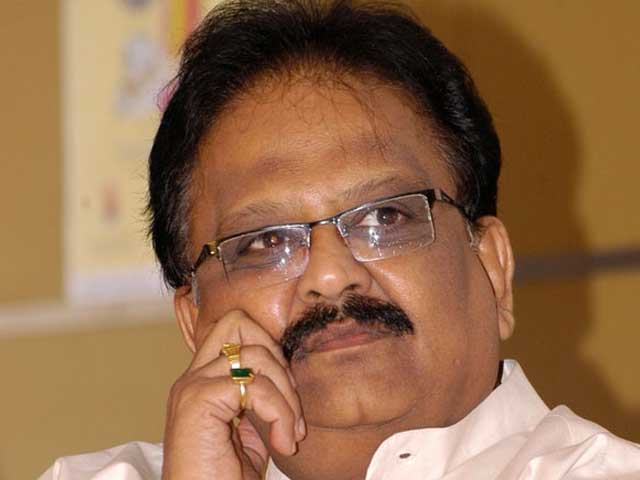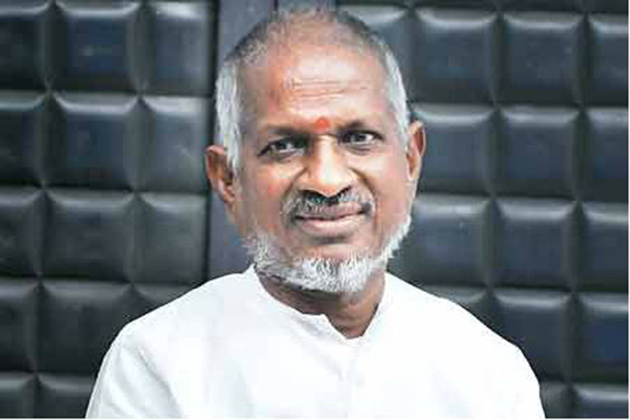Published on March 31st 2017
Has South Indian music composer, instrumentalist, conductor, and songwriter – Ilaiyaraaja, opened up Pandora’s box through his recent move wherein, the music director/composer served a legal notice to legendary singer SP Balasubrahmanyam for singing songs composed by him without his permission.
For the music industry which is already trying to grapple with audio rights issue, like for instance trying to collect royalty in the complicated digital realm which involves not only internet streaming but also use and commercialization of ‘IP’ by mobile network operators through ring tones and caller tunes, this move by Illayaraaja has further complicated issues.

It was possible to monitors sales of cassettes and DVDs, and earn royalties, but beyond this, it is practically difficult to monitor how a composer’s composition is used and the number of people using it. The Indian Performing Rights Society which is supposed to be entrusted the task of issuing licenses to users of music and collecting royalties from them, for and on behalf of its members – artists, composers etc., are themselves entangled in legal cases for siphoning off the funds which was due to these artists.
Illayaraaja’s notification to S P has thrown focus on complexities in copyright protection of music. According to Section 17 of the Copyright Act, 1957, the author of a work is the owner, but if this work is done under employment, it is the employer who is the owner. In the case of composers, the composer is paid a one-time fee and eventually it is the music label which owns the copyright.
According to some legal experts if SP had made a CD of Illayaraaja’s songs and commercialized it without giving any royalties, then that would tantamount to copyright infringement. “However, the present case is fair use of the copyright and must be encouraged,” said a legal expert. Also not clear is whether Illayaraaja holds the copyright of the songs for which he served SP a legal notice.
More than a decade ago A R Rahman had decided to protest against the prevailing practices. The music composer went all out to campaign for securing the financial rights of composers and lyricists. ‘I can’t run to music companies every time I need to use my own song,’ he had said.
According to Rahman he wanted to push for the copyright of composers and lyricists and music producers, wherein everybody would get a share. His contention was that as conventional outlets for music sales were drying up, music companies should envision the changing ground reality which would in future make all music available for free, with only the performers and performances reaping repeated benefits.
On the other side of the debate is the argument that singers should not be held liable to seek permission from music composers and it should be the sole responsibility of the event organisers or tours organisers to obtain permissions and have legalities sorted out with PPL and IPRS. However in the absence of a ‘real’ regulatory body, it would be a long time before the music industry finds a ‘real’ solution to its never ending copy right woes.
For the music industry which has already failed to nurture talent by providing a proper live platform for its own singers (both from film as well as independent) resulting in a generation of kids more tuned into international music and international stars, this kind of a move by composers would only serve as a last straw.
Singers on their part need to cease being enslaved to film music to boost their careers and start writing and composing their own music. Who can even remember the last time a mainstream popular singer went beyond playback singing and released a chartbusting independent album of his own? Till then they would not only have to deal with copyright issues but also resign themselves to celebrity culture (which Indian audiences are slaves to) with popular film actors entertaining audience with their less than mediocre singing.

Since much of our talent is busy in a studio, recording a song, while actors hog the limelight on live stage as always, let’s look at what’s coming out of these studios.
Burning up the popular online music charts are songs from the movie Raabta. Composed by Pritam, with lyrics by Irshad Kamil and Amitabh Bhattacharya, Sound Design by Dj Phukan and Sunny M.R, Recorded by Ashwin Kulkarni, Himanshu Shirlekar, Aaroh Velankar and mixed and mastered by Shadab Rayeen, three songs from Raabta are currently trending in the top ten lists. These include the soothing title song “Raabta” sung by Nikta Gandhi, “Ik Vaari Aa” in the voice of Arijit Singh and “Sadda Move” sung by Diljit Dosanjh and Raftaar.
Also in the top 10 are songs from Half Girlfriend starring Shraddha Kapoor and Arjun Kapoor. Arijit Singh weaves magic yet again with “Phir Bhi Tumko Chaahunga” from the movie, recorded at Studio One and Living Water Music by A Manivannan and Kaushal Gohil and Mixed & Mastered by Eric Pillai at Future Sound Of Bombay.
The other song from Half Girlfriend that made it to the top 10 is the romantic soulful track “Baarish” which is sung by Ash King & Shashaa Tirupati with music by Tanishk Bagchi and Mixed & Mastered by Eric Pillai at Future Sound of Bombay
The multi-talented Parineeti Chopra made a rocking debut with her soothing track “Maana ki Hum Yaar Nahin” from Meri Pyaari Bindu which reached the top of the charts. With music by Sachin-Jigar, the single was recorded at YRF Studios.
The peppy song “Suit Suit”, from the film Hindi Medium which instantly found a spot for itself in the top ten music lists was composed by Guru Randhawa, Rajat Nagpal, Original Music – Intense, sung by Guru Randhawa Ft.Arjun and was Mixed And Mastered by Eric Pillai at Future Sound Of Bombay
New entry to the top 10 list is the powerful rendering of “The Ganesh Aarti” sung by Amitabh Bachchan for SARKAR 3.
So until we get some real chartbusting non-film music from these singer-composers, we would have to keep content with film music and copyright woes.

